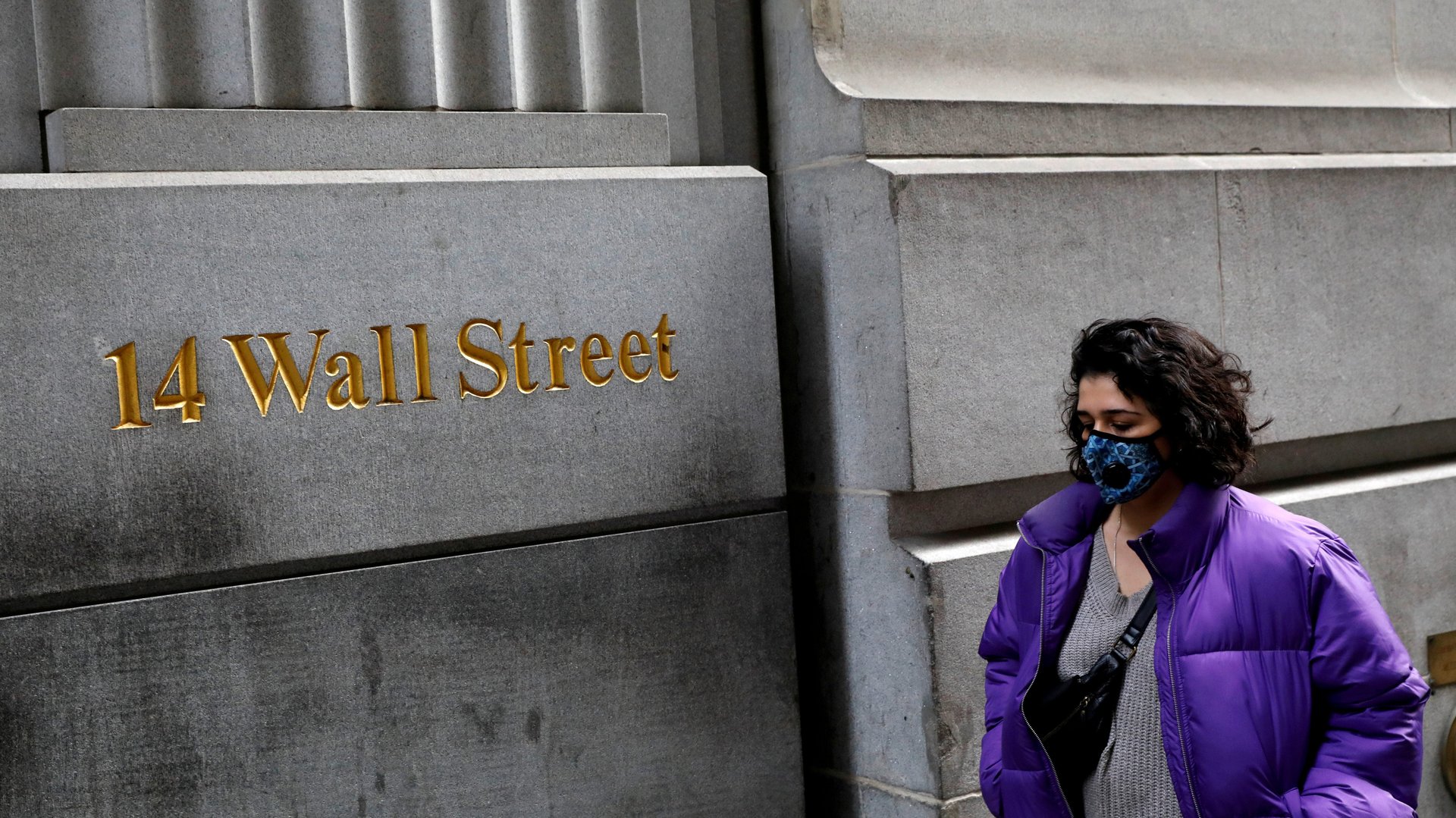European banks are more imperiled by coronavirus disruption than Wall Street giants
The world’s biggest banks have been walloped by the coronavirus pandemic, as business closures and unemployment threaten to cause a wave of credit losses. But the risks are more manageable for American banking giants, according to credit derivatives markets, than for their European counterparts.


The world’s biggest banks have been walloped by the coronavirus pandemic, as business closures and unemployment threaten to cause a wave of credit losses. But the risks are more manageable for American banking giants, according to credit derivatives markets, than for their European counterparts.
The cost of insuring against a default by US banks like JPMorgan and Bank of America is almost back to where it was at the end of February, according to credit-default swap prices compiled by IHS Markit. Credit swaps, a type of default insurance, allow derivatives traders to hedge or speculate on creditworthiness. Swaps linked to European banks like Italy’s Unicredit and Germany’s Deutsche Bank remain much more elevated.
Fear spiked in the middle of March as the number of Covid-19 cases increased exponentially and governments scrambled to contain the breakout. Since then officials have reacted with trillions of dollars of spending and lending, providing aid that could hopefully cut down on missed payments, from credit cards to mortgages, and prevent the bottom from falling out of the economy. In the US, the Federal Reserve has been a forceful lender of last resort, activating one emergency program after another, to keep financial markets operating.
Italy, whose government was heavily indebted even before the onset of the pandemic, has less scope for heavy spending to support its economy than some other nations. The euro area’s economy expanded less than the US in 2019 and is forecast by the IMF to contact more severely this year, which will also take a toll on the region’s banking sector.
The German and Italian banks are weak, and investors are going to take a hit, but those lenders won’t succumb to the pandemic, said Andrew Hilton, director at the Centre for the Study of Financial Innovation, a think tank in London. He said there’s also a bias toward the US during a crisis—the dollar is a haven, and large funds tend to park in the world’s largest economy when the going gets rough.
And while UK-based Barclays may lack the scale and heft to compete with US banking giants, Hilton said, Wall Street banks’ profits were boosted during the first three months of 2020 by their trading desks, which benefit from frantic buying and selling. “US banks were starting from a higher capital base,” Hilton, a former World Bank economist, said in an email. “So everything plays in their favour.”
The banks are far from vaccinated from the pandemic. US lenders should stop paying dividends to investors and raise capital in the equity markets while they still can, wrote Neel Kashkari, president of the Federal Reserve Bank of Minneapolis, in the Financial Times (paywall). While airline executives can argue they weren’t able to see the pandemic coming, banks no longer have that excuse. “We simply do not know how large the losses from this crisis will be, because the depth and duration of the downturn depends on how the virus progresses and how our healthcare systems respond,” said Kashkari, who oversaw the US bank bailout program a decade ago.
For now, the world’s big investment banks are expected to stay modestly profitable despite the virus breakout, according to a report published yesterday by Moody’s Investors Service. These lenders have been fortified with capital since the financial crisis and many have suspended share repurchases. “However, should economic conditions not improve toward the end of 2020 and into 2021, the shock to their profitability and overall creditworthiness would likely be more pronounced,” the rating company wrote.